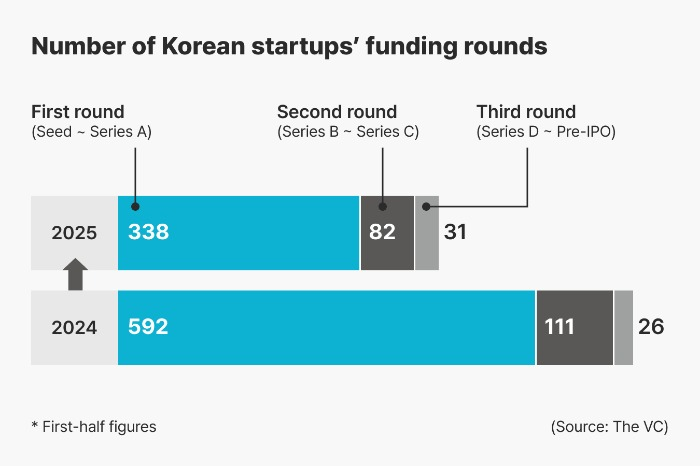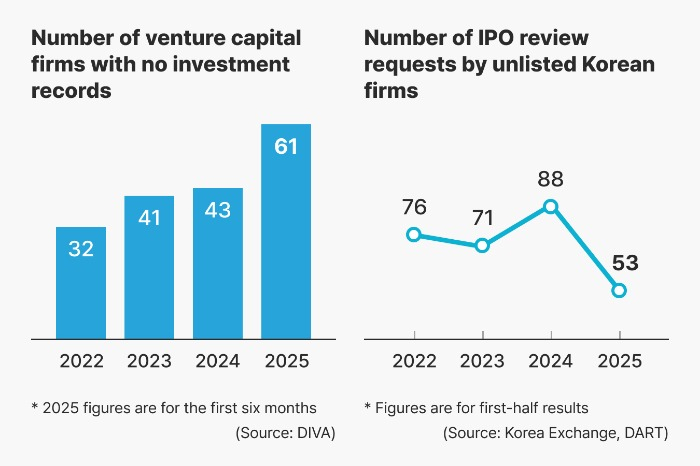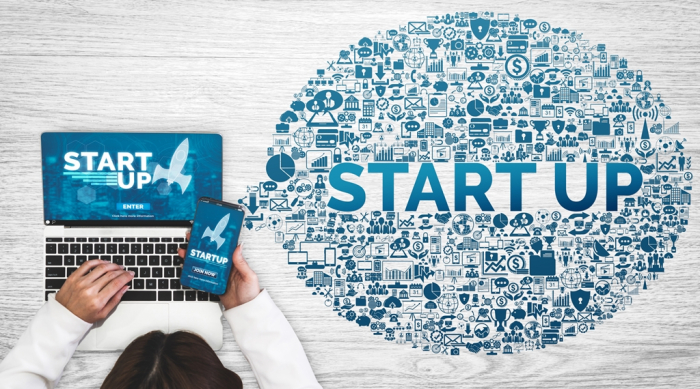
South Korea’s startup community is facing its sharpest funding squeeze in over a decade, as venture capital (VC) firms retreat from new investments. Cash-strapped founders warn that fundraising difficulties could lead to the collapse of the country’s startup ecosystem.
According to the Korean Venture Capital Association (KVCA), one in five registered venture firms made no investments in the first half of this year.
Of the country’s 355 licensed VC firms, about 17% of them, or 61 firms, reported no investments in the first six months. The figure compares with 43 in the entire 2024, 41 in 2023 and 32 in 2022.
Analysts said the rise of inactive venture capitalists is creating a vicious cycle, caused by the lack of initial public offerings and M&A activities to recoup VC firms’ investments, which limits the capital returned to investors, known as limited partners (LPs), who have committed funds to venture capital firms.

The situation leaves VCs with little appetite or capacity to back new companies, analysts said.
STATE-BACKED FUNDS OF FUNDS UNHELPFUL
According to a media report, the US posted a 75.6% on-year jump in venture funding to $162.8 billion in the first half.
In contrast, Korea’s venture capital market tipped into contraction. Government efforts to offset the freeze with expanded contributions from state-backed “funds of funds” have done little to reassure founders.
“Short-term liquidity injections cannot break the negative chain reaction in the market,” said a Seoul-based venture capitalist.

VANISHING VCs
The contraction has already claimed victims.
A venture house based in Andong, North Gyeongsang Province, set up in 2018 to back seed-stage companies, lost its license this month after failing to make any new investments in the first half.
The venture firm’s capital impairment ratio soared above 50% and repeated government warnings left the firm unable to continue business, even with minimal staffing, sources said.
Other funds face the same fate as exits, or means to recoup investments, are getting difficult.
Applications for IPO reviews at the Korea Exchange fell almost 40% on-year to 53 in the first six months, according to the bourse operator.
Flagship names such as K Bank, DN Solutions and Lotte Global Logistics have all shelved listing plans, deepening despair in the venture capital industry.

“There are simply no exits,” said a VC partner in Seoul. “Without liquidity events, we cannot recycle capital, and without capital, we cannot invest.”
Industry officials said the retreat of limited partners has further compounded the problem.
With pension funds and securities houses focusing on safer assets, new fund creation has stalled.
A venture capital manager who launched a firm two years ago recalled visiting 35 potential LPs this spring. “Only three were willing to commit,” he said.
STARTUPS AT RISK
The brunt is borne by Korea’s youngest startups, which rely most heavily on early stage investors.
According to The VC, a domestic venture funding platform, seed-to-Series A deals plunged nearly 43% on-year to 338 in the first half, while investors crowded into more mature, revenue-generating companies by offering them last-stage rounds of funds.
“In the past, you could secure funding with just a strong idea and a good team,” said the founder of an AI startup in Gangnam, southern Seoul. “Now you need to prove revenue and profit and have a track record just to get a meeting. I worry that innovation itself is being snuffed out.”

Industry watchers warn the freeze could sap the Korean startup industry’s long-term competitiveness.
The ecosystem has become increasingly reliant on government-engineered public money.
According to the Ministry of SMEs and Startups, state-backed policy capital accounted for 16.7% of newly raised venture funds in 2023. That share jumped to 23% last year.
Including pension funds and mutual aid associations, technically private but public in character, more than a quarter of the market now depends on state-related capital.
“Without a healthier balance of private capital and functioning exit channels, the Korean venture landscape could face lasting damage,” said a venture capital analyst in Seoul.
By Jeong-Hoon An and Young-Chong Choi
ajh6321@hankyung.com
In-Soo Nam edited this article.















